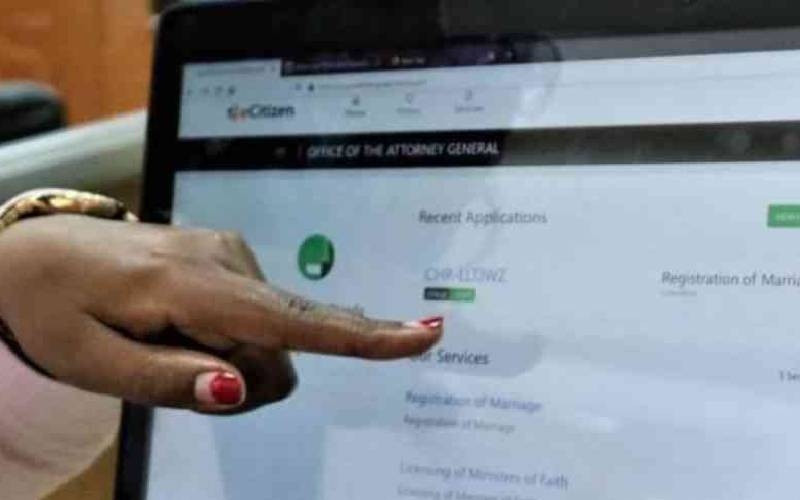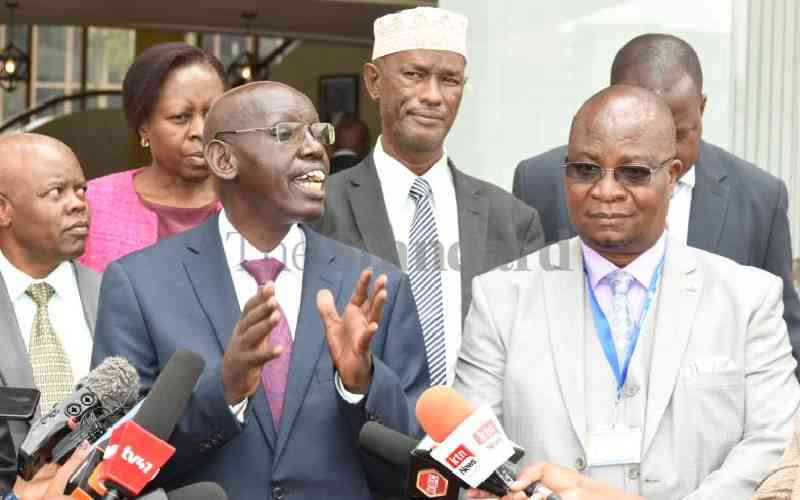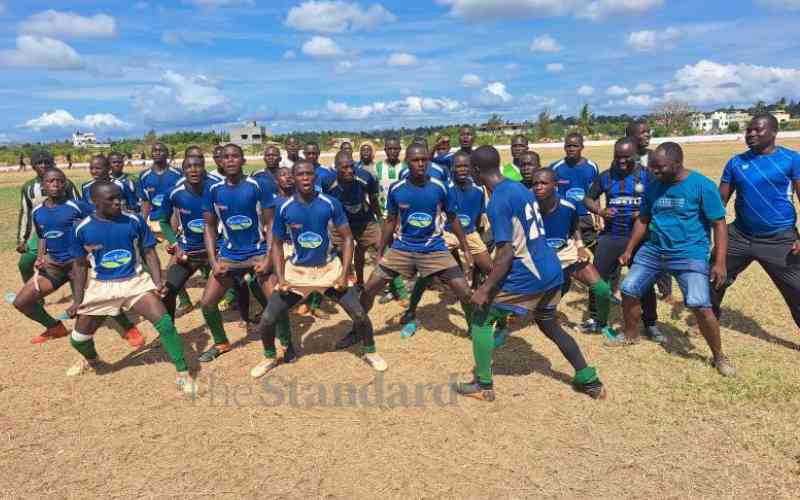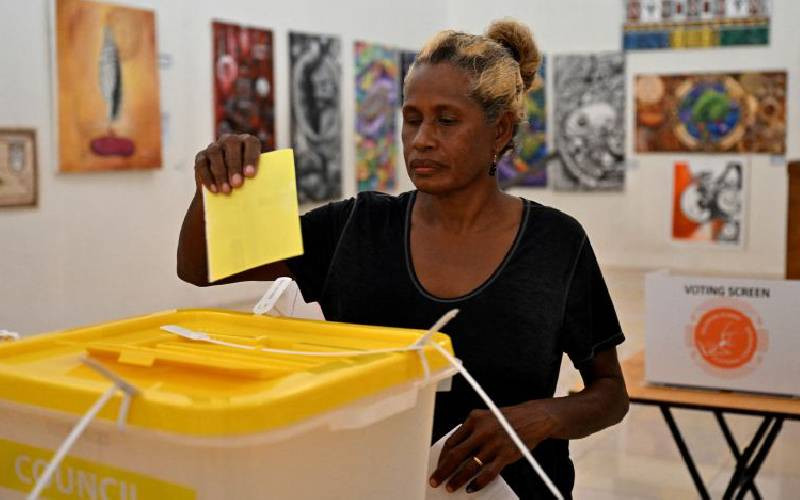The hopes of parents of over 2.1 million secondary school students expecting a reduction in fees starting next year following a task force's recommendation have been dashed.
The Education ministry disregarded the recommendations of the President Uhuru Kenyatta-formed education task force on secondary school fees.
The team had suggested that the Government should increases its capitation grants for secondary school students, a move that would have drastically reduced the fees paid in public secondary schools.
But Education Cabinet Secretary Jacob Kaimenyi killed any hopes of relief after he directed school heads to stick to the fees guidelines the Government issued last year.
Prof Kaimenyi noted that this was in view of a Government decision to increase capitation, under the Free Day Secondary Education programme, from Sh10,265 to Sh12,870.
"The Government has additionally undertaken to pay for national examination fees from January 2015, so there is no reason for anybody to increase school fees," said Kaimenyi.
According to last year's directive, students in day schools were to pay a maximum of Sh11,105 per year. The schools were cautioned against levying any fees above this amount.
Special needs secondary schools fees were capped at an annual fee of Sh22,830, while parents of students in public boarding secondary schools, including the national schools charging as much as over Sh120,000 per year, were required to pay not more than Sh38,969.
The task force, chaired by former Higher Education Assistant Minister Kilemi Mwiria, had recommended that the Government's input in secondary schools be increased by over 100 per cent to cushion parents from high fees.
In its final report released in October, the team recommended that the Government should increase its capitation grant per child to Sh23,975 per year as opposed to the current Sh10,265 to cater for teaching and learning materials, related operational costs and lunch for students in public schools.
This was seen as likely to give parents major relief as the expectation was that the ministry would immediately take into account the recommendations and lower the fees.
Through a circular dated December 18 and signed by Kaimenyi, the ministry has directed all county education directors, sub-county education officers and school heads not to increase the fees beyond last year's guideline.
It therefore follows that this would still remain the fees guideline for next year.
Kaimenyi warned that the Government would take disciplinary action against any school principal who flouted the fees instructions.
He said the Government was consulting with stakeholders to ensure the recommendations made by the task force were realised in future.
Stay informed. Subscribe to our newsletter
Fund projects
The CS explained that school projects should be funded at the maximum allowable Parents Teachers Levy of Sh2,000 and should not affect new students set to be admitted in 2015.
"Modalities of funding new projects in schools will be spelt out during the said consultations and such schools are advised against entering into such commitments," said Kaimenyi.
He said the Government was working towards making education affordable, and increasing access, equity and quality.
"To achieve this, school boards of managements should strategise on cost-cutting measures to minimise wastage and enhance accountability," Kaimenyi observed.
But Kenya Union of Post Primary Education Teachers (Kuppet) Secretary General Akello Misori criticised the circular released by the ministry, saying it did not add up and "it will be unavoidable to increase school fees".
Mr Misori charged that it would be very difficult for school heads to run their institutions based on the current fees structure when commodity prices had sky-rocketed.
"This circular does not add up. The school heads will be forced to call the parents and tell them about the situation," said Misori.
Misori said the ministry should implement the Kilemi Mwiria task force recommendation to increase the capitation for secondary school students from Sh10,265 to Sh22,000 per year.
"I fail to understand why the ministry has never given a circular based on the task force's recommendation regarding fees. The ministry's increase from Sh10,265 to Sh12,870 is still not adequate. Every child has a right to quality education, and you cannot achieve that right with inadequate capitation," added Misori.
The Kuppet official said the prevailing economic conditions called for a fee increase because the amount the Government allocated per child under the free education programme was not sufficient.
Kenya Secondary School Heads Association Chairman John Awiti said the debate on school fees had been raging for some time, with various stakeholders holding on to different positions.
However, he remained non-committal on the circular released by the ministry, saying he would study its contents before giving a comprehensive statement.
Too late
"There has been debate on the issue for some time now. The CS only reacted to parts of the task force recommendation and increased the capitation. But I will give a full statement once I am familiar with the contents of the circular," said Awiti by telephone yesterday.
In the current financial year, the Government has already increased capitation to Sh12,870 from Sh10,265 for both day and boarding public secondary schools.
Kenya National Association of Parents Secretary General Musau Ndunda asked Kaimenyi to gazette the prescribed school fees in 2015.
He said the ministry was late in releasing the circular and schools had already given students fees structures that might be contrary to the provisions of the ministry.
"There must be legal backing for the fees structure. In 2013, schools were charging between Sh30,000 and Sh100,000. Directing schools to stick to the 2013 fees structure is not making sense," said Ndunda.
Ndunda questioned why the Government had failed to implement the proposed flat rate of Sh38,000 a student per year in all public secondary schools.
The education task force on secondary school fees had the mandate to review ways of making secondary school education accessible to all school-age youths through establishing realistic unit costs.
There are 7,325 public secondary schools with an enrollment of 2,144,069 students. The Government spends Sh44 billion annually on a total of 67,966 secondary school teachers.
 The Standard Group Plc is a
multi-media organization with investments in media platforms spanning newspaper
print operations, television, radio broadcasting, digital and online services. The
Standard Group is recognized as a leading multi-media house in Kenya with a key
influence in matters of national and international interest.
The Standard Group Plc is a
multi-media organization with investments in media platforms spanning newspaper
print operations, television, radio broadcasting, digital and online services. The
Standard Group is recognized as a leading multi-media house in Kenya with a key
influence in matters of national and international interest.
 The Standard Group Plc is a
multi-media organization with investments in media platforms spanning newspaper
print operations, television, radio broadcasting, digital and online services. The
Standard Group is recognized as a leading multi-media house in Kenya with a key
influence in matters of national and international interest.
The Standard Group Plc is a
multi-media organization with investments in media platforms spanning newspaper
print operations, television, radio broadcasting, digital and online services. The
Standard Group is recognized as a leading multi-media house in Kenya with a key
influence in matters of national and international interest.








